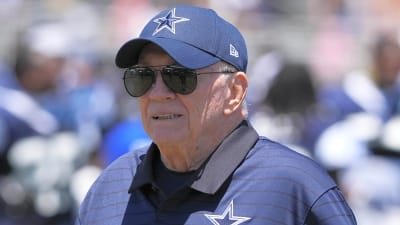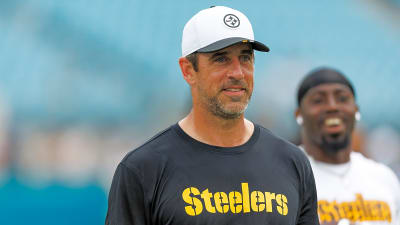
Detroit Lions head coach Dan Campbell has never shied away from being candid and transparent, traits that endear him to fans but also paint a clear picture of the challenges the team is facing. His latest update on defensive end Josh Paschal has raised eyebrows, casting doubt on the Lions’ defensive depth as the 2025 season approaches.
Paschal, who is currently on the Non-Football Injury (NFI) list, is reportedly set to miss the start of the season. When asked about Paschal’s recovery, Campbell offered a pessimistic assessment, hinting strongly that the second-year edge rusher will remain on the NFI list beyond Week 1, keeping him off the field for at least the first four games. This is a significant blow to a pass-rushing unit already grappling with depth issues.
Detroit Lions Josh Paschal’s Uncertain Timeline
Entering the 2025 season, the Lions had high hopes for Josh Paschal, a young pass rusher with untapped potential. Seen as a rotational piece with the ability to grow into a more prominent role under defensive coordinator Kelvin Sheppard, his absence now creates a notable void on the depth chart. Campbell’s comments, delivered with his usual bluntness, suggest Paschal’s recovery is not progressing as quickly as initially anticipated.
While the specific details of Paschal’s injury remain undisclosed, his continued absence has ripple effects for both the roster and the defensive scheme the Lions plan to implement. Starting the season on the NFI list not onl y sidelines Paschal for the first four games but also delays his development—a key component in the Lions’ defensive future.
A Bleak Outlook for Pass-Rushing Depth
Paschal’s predicament comes as the Lions’ edge-rushing group faces additional setbacks. Rookie pass rusher Ahmed Hassanein recently suffered a pectoral injury during the preseason Week 2 matchup against the Miami Dolphins. Although surgery is not required, Hassanein is expected to miss significant time, leaving the depth chart worryingly thin. Without Paschal and Hassanein, much of the burden falls on starters Aidan Hutchinson and Marcus Davenport.
While Hutchinson continues to perform at an All-Pro level, injuries have historically disrupted Davenport’s availability throughout his career. Banking on a fully healthy and productive season from Davenport feels risky, particularly when the team aims to make a deep postseason run.
The loss of key depth pieces like Paschal makes the edges of the defensive line vulnerable. Teams with dynamic offensive lines or mobile quarterbacks could capitalize on this weakness, exploiting mismatches and wearing out Hutchinson and Davenport over a long season.
How Dan Campbell and the Lions Can Offset These Absences
Dan Campbell and general manager Brad Holmes face a pressing challenge—how to bolster a pass-rushing unit that appears understaffed heading into Week 1. Here are some potential solutions the Lions could explore:
The free-agent market provides an opportunity to add reinforcements, albeit at a potentially elevated cost. The Lions could look at veterans like Za’Darius Smith, a former Lion who could bring experience and leadership to the defensive line. While Smith has had his share of injury concerns, his proven track record as a disruptor in the pass rush could provide immediate dividends.
2. Test the Trade Market for Impact Players
If free agency doesn’t offer enough upside, the Lions could explore mid-level trade scenarios to secure a proven edge rusher. With playoff aspirations in mind, parting with a late-round draft pick to shore up a key weakness could be the most pragmatic route.
3. Shift Focus on Internal Development
For a team focused on long-term sustainability, doubling down on in-house players like Levi Onwuzurike or Romeo Okwara could offer s ome upside. While not direct replacements for Paschal’s style, these defensive linemen bring complementary skill sets that could help plug gaps in the pass rush.
4. Adjust Defensive Schemes to Minimize Risk
The Lions could also tweak their defensive scheme under Sheppard to compensate for the lack of edge-rushing depth. Employing more stunts and blitz packages to create confusion at the line of scrimmage could mask deficiencies and create opportunities for defenders to disrupt plays.
A Bigger Challenge Ahead for the Lions’ Defense
Beyond the immediate implications for the pass rush, Josh Paschal’s situation raises larger concerns about the Lions’ defensive sustainability. The NFC North remains competitive, with Aaron Rodgers leading the Chicago Bears and Jordan Love developing into a weapon for the Green Bay Packers. The Lions’ inability to create consistent pressure could expose their secondary to a greater workload and risk.
While Hutchinson provides a stabilizing force, the defensive line will need more collective contributions to keep up with the league’s elite offenses. Campbell’s candid admission about Paschal’s status serves as a stark reminder that no team—even one with playoff aspirations—can afford to ignore depth concerns.
A Forward-Looking Strategy
Despite these setbacks, the Detroit Lions remain in a position to compete at a high level in 2025. The synergy between Campbell, Morton, and Holmes provides a strong foundation, and the team has previously demonstrated its ability to adapt to adversity. Addressing the pass-rushing situation swiftly and decisively will be crucial in preserving the Lions’ momentum heading into the regular season.
Paschal’s development remains a long-term priority for the Lions, but the team must ensure that short-term losses on the depth chart don’t derail aspirations for a postseason berth. By finding solutions—whether through personnel moves or strategic innovation—the Lions can mitigate the challenges exacerbated by Paschal’s injury.
The upcoming weeks will be a defining period, as Campbell and the Lions seek to balance an immediate response with long-term strategy. For now, the team’s focus is clear: shore up the defense, stay competitive, and keep their eyes firmly on January football.
More must-reads:
- Angry Mike Vrabel vows to find 'rats' within Patriots organization who leaked major news
- Commanders turning to seventh-round rookie after Brian Robinson Jr. trade?
- The 'Second-leading receiver by NFL team' quiz
Breaking News
Trending News
Customize Your Newsletter
 +
+
Get the latest news and rumors, customized to your favorite sports and teams. Emailed daily. Always free!








